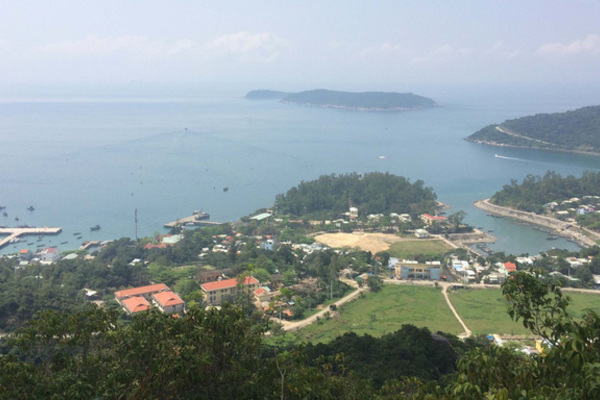 |
|
Cu Lao Cham Island
|
Authorities of Quang Nam’s Hoi An City held a seminar on measures to protect Cu Lao Cham Biosphere Reserve on Friday.
According to Dr. Nguyen Van Long, head of Institute of Oceanography, Cu Lao Cham is home to a diverse eco-system with 125 coral reefs and 30 hectares of seagrass. However, rocketing tourist development has critically affected the coverage of corals and seagrass.
In the first quarter of this year, the island served nearly 54,000 visitors, up 169% on year from last year. This year, Cu Lao Cham is expected to welcome the same number of visitors as last year. This has also resulted in a freshwater shortage.
The increasing number has pressured on local waste treatment facilities which are running on full speed to keep up with the amount of waste discharged, but their capacity still cannot meet demand.
Tran Huu Vy, an expert from GreenViet Biodiversity Conservation Centre, said that resort construction at Bai Huong area has damaged part of the local natural forest.
Dr. Chu Manh Trinh from Cu Lao Cham preservation management board suggested the model to connect the natural environmental preservation and the socio-economic development. It is important for how to ensure local residents benefit.
He mentioned successes from eco-tourism programmes in Hoi An City’s Cam Thanh Commune, which are focused on the co-operation between the locals and travel firms, as a typical example.
Some other recommended that it is essential for Cu Lao Cham to reduce tourist numbers but being able to raise tourism revenues by concentrating on developing unique products and infrastructure to lure those who are willing to spend more on the island services.
Cu Lao Cham was recognised as a world biosphere reserve in 2009 by UNESCO for its rich biodiversity.
According to the UNESCO website, there are 947 kinds of creatures living around the marine area of Cu Lao Cham, including 178 species of fish, 122 species of seaweed, 134 species of coral, 144 species of shellfish, 25 species of crustacean and many other marine species.
The island is also carrying out a campaign against the use of plastic bags.
Nguoilaodong/Dtinews
 Cu Lao Cham Island in the central city of Quang Nam has become overcrowded with tourists, further threatening its natural resources.
Cu Lao Cham Island in the central city of Quang Nam has become overcrowded with tourists, further threatening its natural resources.